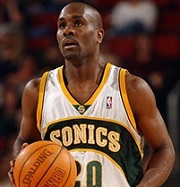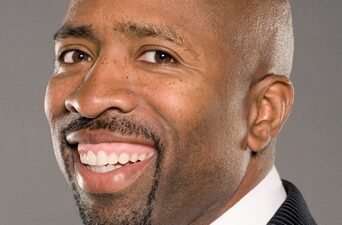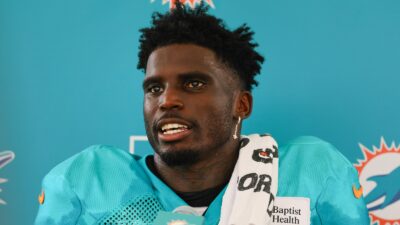 Softball may no longer be an Olympic sport, but Jennie Finch was a key member of the U.S. National Team during two of the four years it was part of the Summer Games. LBS spoke with Finch, a former gold medalist and University of Arizona star player, about what it takes to reach that level as a player. We also discussed softball’s efforts to regain Olympic status.
Softball may no longer be an Olympic sport, but Jennie Finch was a key member of the U.S. National Team during two of the four years it was part of the Summer Games. LBS spoke with Finch, a former gold medalist and University of Arizona star player, about what it takes to reach that level as a player. We also discussed softball’s efforts to regain Olympic status.
Finch was touring on behalf of the Capital One Cup (see the current NCAA standings), and we spoke last Friday as the Women’s College World Series was beginning. She mentioned Oklahoma, Cal, and Alabama as the teams from whom she was expecting the most. She was right on — Oklahoma and Alabama are meeting in a three-game championship series that begins on Monday night. Finch mentioned Oklahoma’s Keilani Ricketts, Alabama’s Jackie Traina, Cal’s Valerie Arioto, and Arizona State’s Katelyn Boyd as the players who have impressed her the most. It will come down to Ricketts and Traina for the national title.
So what does it take to reach that star level as a player?
“A lot of hard work, sacrifice, and dedication. It takes a lot of blood, sweat, and tears put into it — hours and hours of it,” Finch told LBS.
Finch says she began pitching seriously at age eight, and that she would practice every other day, and play on Friday, Saturday, and Sunday.
Though she is known for being extremely successful during her career, I asked Finch if she ever had any slumps, and how she overcame them.
“I think it’s a matter of taking the attention off yourself and focusing on your teammates and pouring that energy into your teammates,” said Finch, “and then eventually it comes back to you. Just working hard through it and learning perseverance.
“Looking back on it, some of those failures and slumps were some of the greatest life lessons. I think I used it as motivation keep working hard,” she explained.
Finch said she had a few injuries during her career. She had a forearm injury in college, and a knee injury when she was younger. How did she overcome them?
“Sometimes it’s rest. Sometimes a little break from the game helps you grow and not take being on the field for granted. You just have to be smart, listen to your doctor, and listen to your body,” she said.
Asked what advice she would give to someone who aspires to reach her level as a softball player, she said it’s not about trying to be Jennie Finch.
“Be the best you. Too often we compare ourselves to others instead of just being the best that we can be. Focusing on your strength and working on your weaknesses, but knowing your strengths and letting those shine.”
Finch retired from softball two years ago, but I asked if she missed it when she’s watching it or commentating.
“[I miss it] a bunch. I definitely have so many great memories of playing. Just with the camaraderie with my teammates — I think I miss that the most, along with competing. Just competing, training with teammates, and working toward that common goal is what I miss.”
Our conversation turned to focus on softball’s status with the Olympics. Softball was an Olympic sport at Beijing in 2008, but it was rejected for the 2012 and 2016 Games. I asked Finch why she thought it was excluded.
“One of the reasons they usually pull sports from the Olympics is the ratings. But we were right in the middle. We weren’t even in the lower half — we were in the upper half of all those ratings,” she said, defending the sport. “Our sport finally was growing, and 16 years isn’t very long for countries to establish their programs, but we were finally getting there.”
I asked her if she thought the U.S.’s dominance in the sport was part of the reason it was pulled. She said no, and offered two other explanations.
“I don’t think so. If you look at any of the sports, there’s a rich tradition in a lot of the countries, and that’s what the Olympics is about — it’s about excellence. So I don’t think that’s the reason.
“I think softball being partners with baseball could have hurt us because baseball doesn’t require drug testing, and they don’t need the Olympics. Softball is in a whole different situation, and we’re two different governing bodies. So I think that relationship might have hurt us.
“Also, softball and baseball aren’t that popular in Europe, and Europeans have a strong presence on the International Olympic Committee. So I think there were a couple of factors against us going in, and I think the IOC didn’t really differentiate between softball and baseball.”
Even though softball won’t be played in the next two Summer Games, Finch isn’t giving up hope.
“I hope to get it back in, and I hope the opportunity is there for future softball players all over the world. We’re lucky to have the College World Series and companies like Capital One that support women in sports and allow women to shine in that atmosphere and platform.”
Photo Credit: Bob Donnan-US PRESSWIRE












